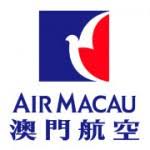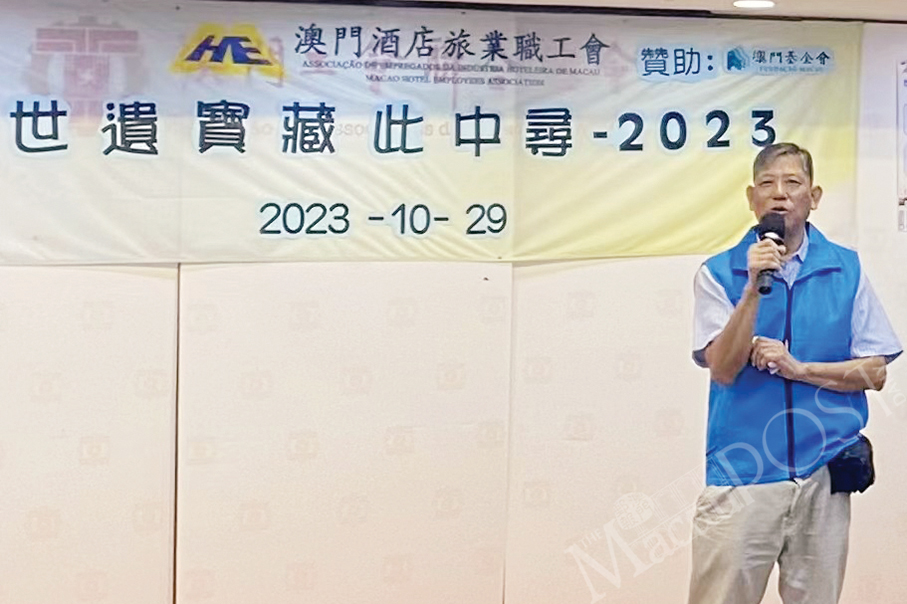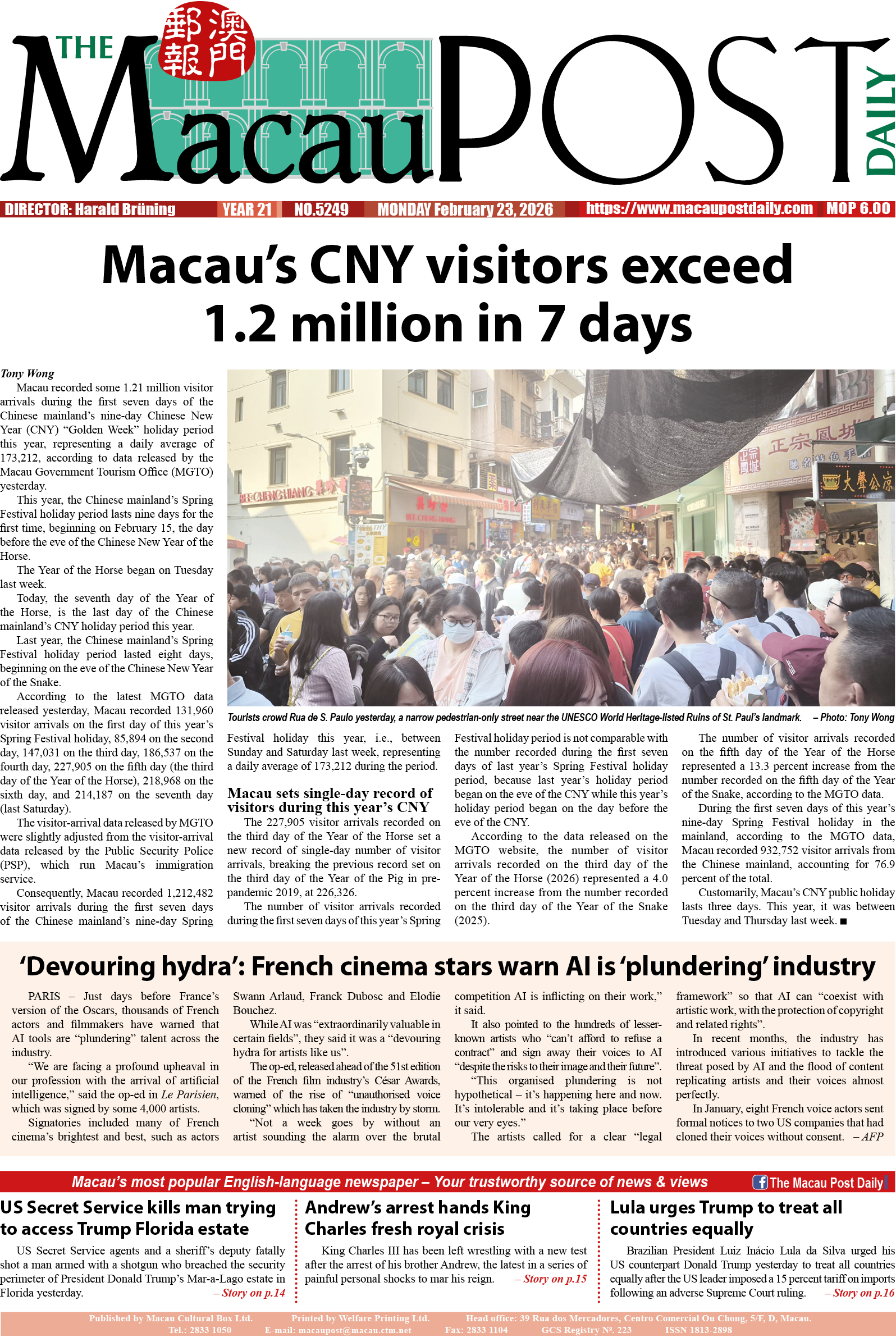Chief Executive Ho Iat Seng said yesterday that only after COVID-19 vaccines are available can Macau’s economy and employment situation improve.
Ho made the remarks during a Q&A session in the legislature’s hemicycle yesterday afternoon. The chief executive attended the four-hour session, which was held a day after he delivered his 2021 Policy Address, to answer questions from 31 lawmakers in the 33-member Legislative Assembly (AL), which is headed by Kou Hoi In. The marathon Q&A included a 15-minute coffee break.
Ho said that the economy and employment situation of many countries and regions all over the world has been hard hit by the COVID-19 pandemic, and Macau is one of them.
Ho admitted that therefore, at least for the time being, it was difficult to tackle Macau’s unemployment issue, which could only be solved by an economic recovery.
According to the Statistics and Census Bureau (DSEC), residents’ unemployment rate reached 4.1 percent in the July-September employment survey period. The underemployment rate climbed to 4.7 percent.
Pointing out that certain COVID-19 vaccines are now widely expected to become available in the near future, Ho said that after all Macau residents get vaccinated against COVID-19, the government would lift its current entry ban on foreigners who then wouldn’t even need to be tested for COVID-19 before entering Macau.
Foreign nationals without a local residence permit have been banned from entering the special administrative region since March.
Ho said that the availability of COVID-19 vaccines was a “key factor” that would change Macau’s current “bad” economy and employment situation.
“After [Macau residents] get their COVID-19 vaccination and develop antibodies, the government will dare to reopen [Macau’s tourism] market [to the world],” Ho said.
“If all people [in Macau] get their COVID-19 vaccination, the situation [in terms of its economy and employment] will change, as we won’t need to be scared of tourists who may have been infected with the [novel coronavirus] disease,” Ho said.
Ho said he believed that Macau as a small economy which has suffered a sharp downturn will be able to have a quick recovery.
Ho underlined that the Macau government will strive to purchase a sufficient number of doses of COVID-19 vaccines so as to cover the city’s whole population.
According to official demographics, Macau’s population – comprising residents and non-resident workers – stood at 682,800 at the end of the third quarter.
The Health Bureau (SSM) has said that the local government aims to purchase 1.4 million doses of COVID-19 vaccines covering the city’s whole population – two shots for each person.
Ho also admitted that the real number of the jobless in Macau is higher than what the official unemployment figure suggests. Ho said that some residents have chosen to take unpaid of half-paid leave as they did not want to terminate their employment contracts with their current employers, as they were worried that they would not be employed by the companies again once the economy starts to recover.
Grand Prix ‘headache’
Meanwhile, Ho also said that the government has decided to go ahead with the Macau Grand Prix (MGP) this year amid the COVID-19 pandemic because it already decided last year to hold the annual motor-racing event in 2020 and signed agreements with the relevant contractors at that time. Ho said that if the government had decided to cancel this year’s Macau Grand Prix, it would have needed to pay “a lot of” money in compensation.
Ho said that therefore the government has decided to continue with this year’s Macau Grand Prix – despite “many” residents opposing it, also with the aim of promoting Macau’s image as a safe tourist destination free from COVID-19. The 67th Macau Grand Prix will be held from Friday to Sunday.
Macau has not confirmed a new COVID-19 case for 144 days. The number of confirmed cases stands at 46, 44 of which have been classified as imported cases by the Health Bureau (SSM). No novel coronavirus fatalities have been reported in Macau.
Ho pointed out that organising a major sports event is a task that has to start at least six months or a year in advance, rather than one month or two weeks, adding that therefore the government already needs to decide whether to hold the Macau Grand Prix next year.
Ho said that the government already needs to plan all major sports events for next year, but it is now facing a dilemma as for the time being it doesn’t know the development of the COVID-19 pandemic next year.
Ho said that if the Macau Grand Prix is not held next year, there would be one element less attracting tourists at that time.
The chief executive admitted that whether or not to hold Macau’s major sporting events such as the Grand Prix next year is giving him a headache.
5G coverage to cost 3 billion patacas
Meanwhile, Ho also said that a 5G network covering the whole city would need an investment of over three billion patacas. Ho said that the disadvantage of 5G is that the signal from a base station only coves a small area, and therefore a 5G network requires a large number of such stations. Ho said that for a 5G network to cover the whole city of Macau, it is estimated that 500 macro-base stations and 2,000 micro-base stations would be needed, requiring an investment of over 3 billion patacas.
Ho said he expected Macau’s future 5G network to be applied in teaching and medical services first.
Welcoming HK visitors
Meanwhile, Ho pointed out that according to its standards the central government would only classify Hong Kong as a COVID-19 low risk area if no new local cases have been confirmed for 14 consecutive days. Ho said that only if Hong Kong achieves this situation could Macau lift its 14-day quarantine for arrivals from there.
Ho said that the Macau government surely wants Hong Kong visitors, but Macau still couldn’t offer them quarantine-free entry due to the fact that the neighbouring special administrative region’s COVID-19 epidemic situation has still not stabilised. Ho said he hoped that the Hong Kong government could bring the number of new local COVID-19 cases to zero under its recently-rolled out COVID-19 control measures so that the movement of people between the two cities could resume as normal.
Hong Kong residents returning to Hong Kong from the mainland or Macau will not need to undergo the Hong Kong government’s 14-day quarantine starting from next Monday.
Ho also said he hoped that Hong Kong residents who have completed their 14-day quarantine in the mainland will choose to visit Macau for a while before returning to Hong Kong, which would be “a good thing” for Macau. “We welcome them to come to Macau to travel around the city and eat something here before returning to Hong Kong,” Ho said.
In 2019, Hongkongers accounted for 18.6 percent of Macau’s 39.4 million visitor arrivals.
Ho also underlined the problem that while the tourism sectors’ facilities have been designed for 40 million visitors a year, due to the COVID-19 crisis the number has fallen drastically this year. He likened the predicament to those who have got a large stomach because they had a lot to eat in the past but now have to face the problem that they haven’t got much to eat in spite of their big stomach.
According to official data, Macau recorded 4.02 million visitor arrivals in the first nine months of this year, a year-on-year decline of 86.7 percent.
Meanwhile, Ho also said that without an official urban master plan, drafting a transport plan for the city would be like someone “talking about stratagems on paper”. Ho said that therefore Macau’s transport plan for the next decade will have to be drafted in line with the city’s official urban master plan, which is expected to be published at the end of next year.
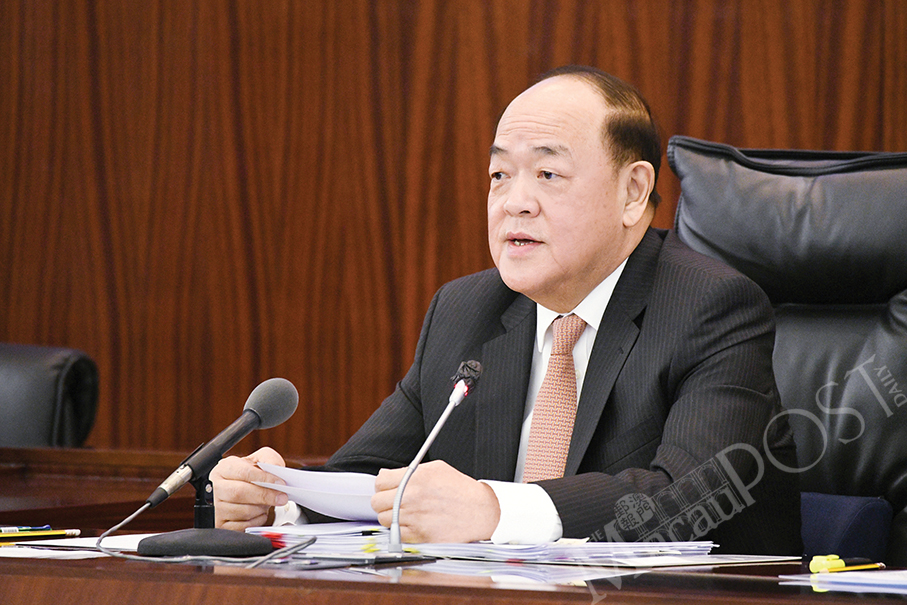
Chief Executive Ho Iat Seng answers questions from lawmakers during yesterday’s four-hour Q&A session in the Legislative Assembly’s (AL) hemicycle. Photo: GCS
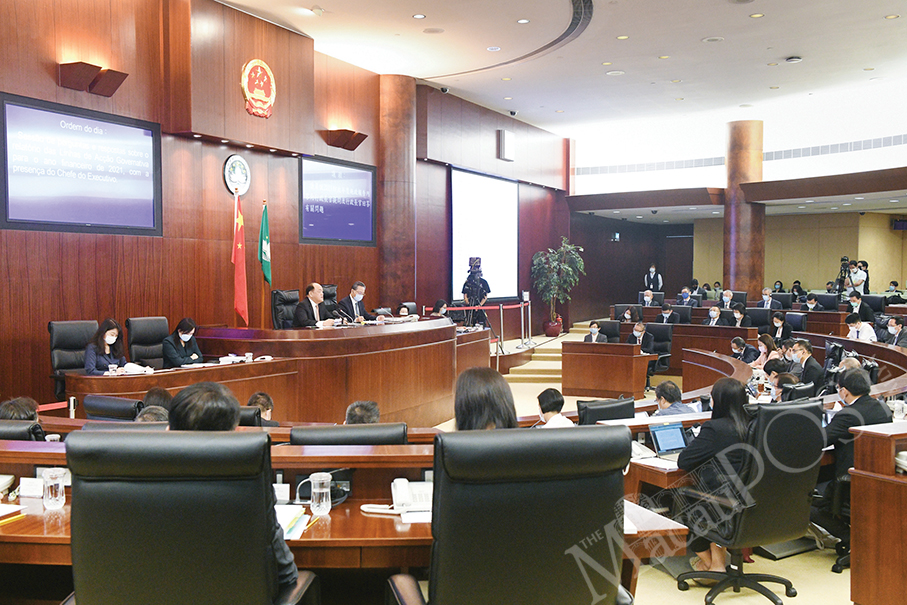
Legislators attend yesterday’s Q&A session about Chief Executive Ho Iat Seng’s 2021 Policy Address in the legislature’s hemicycle. Photo: GCS






